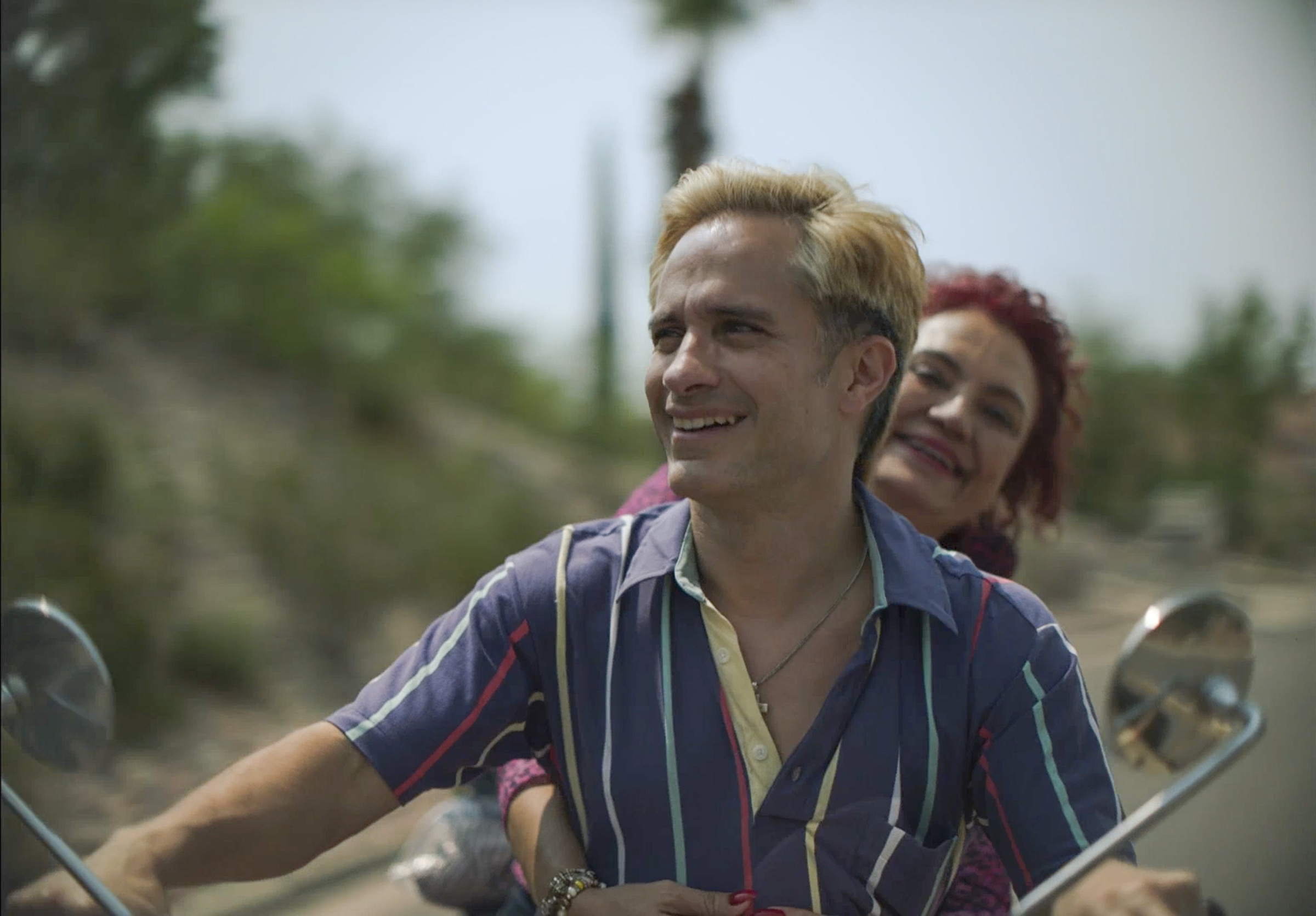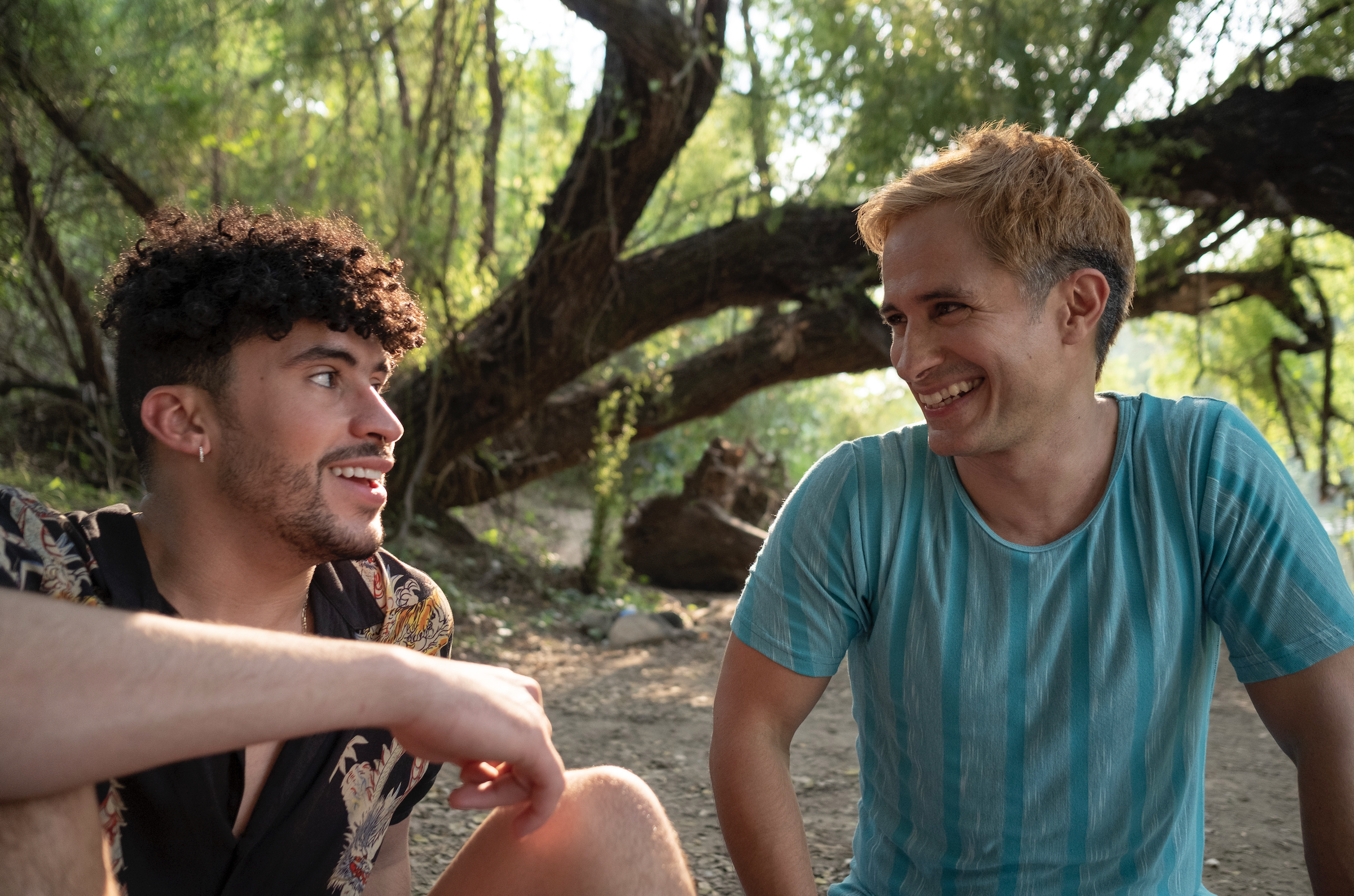Delight is hard to come by in 2023. Social media is both a fantastic tool for self-expression and a convenient town square for public scolding—sometimes the noise of the latter cancels out the benefits of the former. Self-righteousness and preening selfies are everywhere; individuals with a sense of humor about themselves are few and far between. Into this somber arena steps a character—based on a real person—who’s so sure of himself that he doesn’t mind having a laugh at his own expense. In Roger Ross Williams’ Cassandro, now streaming on Prime Video, Gael García Bernal plays Saúl Armendáriz, the man who would become the lucha libre star Cassandro, a scrappy, glamorous, openly gay wrestler who carved a place for himself in a world of machismo. As Bernal plays him, Cassandro is a hero for our dismal times, not just because he crashes through norms, but because he makes it look fun, even when it most certainly isn’t. This is a performance filled with truthful joy, and it floods this modestly scaled but open-hearted movie with light.
Before Saúl becomes Cassandro, he’s an amateur luchador living in El Paso but regularly crossing the border into Juarez for local matches. He hopes to make his mark in Mexican wrestling without resorting to adopting the identity of an exótico. An exótico is a fighter—possibly straight, possibly not—who dresses in drag as a way of drawing attention to the manly-man qualities of his opponent. The exótico’s job is to get the crowd hyped up, attracting their jeering epithets. He’s never supposed to win; in fact, the ugly homophobic subtext is that the audience ostensibly takes pleasure in seeing him beaten. (In lucha libre, the winners are generally predetermined.) Then Saúl meets a trainer, Sabrina (Roberta Colindrez), who thinks she can make him into a better wrestler. She also convinces him that an exótico isn’t a bad thing to be, and that embracing that role might end up being the very thing that sets him apart.
Read more: Director Roger Ross Williams Always Roots for the Underdog

Saúl has been raised solely by his mother, Yocasta (played, in a spirited performance, by Perla De La Rosa), whom he adores. Luckily, she has a closet well-stocked with leopard-print bodysuits and shiny going-out tops. Saül fashions a flamboyant costume and re-emerges onto the scene as Cassandro, the exótico with a difference. As Saúl says mischievously, “He wins.” Unlike most lucha libre wrestlers, Cassandro doesn’t wear a mask; makeup is his armor, and when he steps into the ring, he’s a vision in glittery metallic fabric and artfully applied eyeliner, his hair a punky bleached-blonde tousle. He teases and flirts with his opponents, which seems to infuriate them—their faces may be hidden by their stretchy patterned masks, but it’s not hard to read their body language. Yet the crowd, as it turns out, loves it. Cassandro’s fighting style is acrobatic and jubilant. He tumbles past his opponents in naughty elfin fake-outs, only to whirl around and grab them, sometimes with theatrical amorousness. He’s so wiry and fast they don’t know what’s hit them.
But there are times, too, when he’s pinned to the mat so brutally that it’s clear he’s in a world of pain. Cassandro is up for all of it—it’s part of the cost of being in this world—and with the help of an ambitious if somewhat sleazy promoter, Joaquín Cosio’s Lorenzo, he lands a high-profile Mexico City match that could make or break his career. His opponent is the silver-masked El Hijo del Santo (playing himself), who’s part of a lucha libre dynasty—and who must not, under any circumstances, be beaten.
Cassandro is a deeply affectionate film, tracing the highs and lows of Saúl’s career, with a focus on the highs. (Director Williams, who won an Oscar in 2010 for his documentary short Music By Prudence, also profiled Armendáriz in 2016 for Amazon’s New Yorker Presents series.) But Bernal, in this exuberant yet subtle performance, draws us into Saúl’s darker moments too. Right before his big match against El Hijo del Santo, Saúl has a breakdown of sorts, tumbling from a cocaine high into darkest despair; it’s Sabrina who draws him out of it. (In real life, Armendáriz was so distraught by the negative chatter preceding the match that he attempted suicide by slitting his wrists a week before. Another exótico and close friend saved him.) Saúl is grief-stricken when his mother dies suddenly, and he struggles to reconcile his feelings for his estranged, disapproving father, Eduardo (Robert Salas).
Saúl’s love life, too, is brushed with melancholy. He’s in love with another luchador, Gerardo (the wonderful Raúl Castillo), a married family man intent on protecting his hetero facade. Their furtive trysts are playful and erotically athletic, but it dawns on Saúl that Gerardo doesn’t want him to grow out of his assigned role. When Saúl playfully suggests that his more assertive alter ego Cassandro might be “a top,” Gerardo waves the joke off. Gerardo is happy to sleep with sexy, adorable, compliant Saùl; he’d rather not deal with the more self-assured Cassandro, who might make demands on him that he doesn’t want to fulfill.

Read more: Bad Bunny's Next Move
As played by Bernal, both Saúl and Cassandro, two sides of the same man, are so charismatic that even straight guys (or, at least, guys who assert their straightness) are tempted. When Saúl flirts with Lorenzo’s young right-hand man, Felipe (played, charmingly, by Benito Antonio Martínez Ocasio, also known as Bad Bunny), Felipe deflects this flirtatious seduction but doesn’t recoil from it—he accepts it as the compliment that it is.
Because to turn away from Bernal’s Saúl is to miss out on sunlight. The pleasure of Cassandro lies in watching Saúl learning to fill up every corner of his identity, as a gay man, as a performer and athlete, as a person who is always just yearning for more. To watch Cassandro bounce around that ring, sometimes kissing his opponents full on the mouth and drawing back with a grin, or miming sexual acts with the faux innocence of an ingenue, is to see a person reveling in the gifts he’s been given. He can laugh at himself, even when his world seems dark. At one point he assesses an opponent’s fighting style: “That guy has no poetry.” Cassandro, on the other hand, has plenty. It sings in every muscle, including his heart.
More Must-Reads from TIME
- Cybersecurity Experts Are Sounding the Alarm on DOGE
- Meet the 2025 Women of the Year
- The Harsh Truth About Disability Inclusion
- Why Do More Young Adults Have Cancer?
- Colman Domingo Leads With Radical Love
- How to Get Better at Doing Things Alone
- Michelle Zauner Stares Down the Darkness
Contact us at letters@time.com